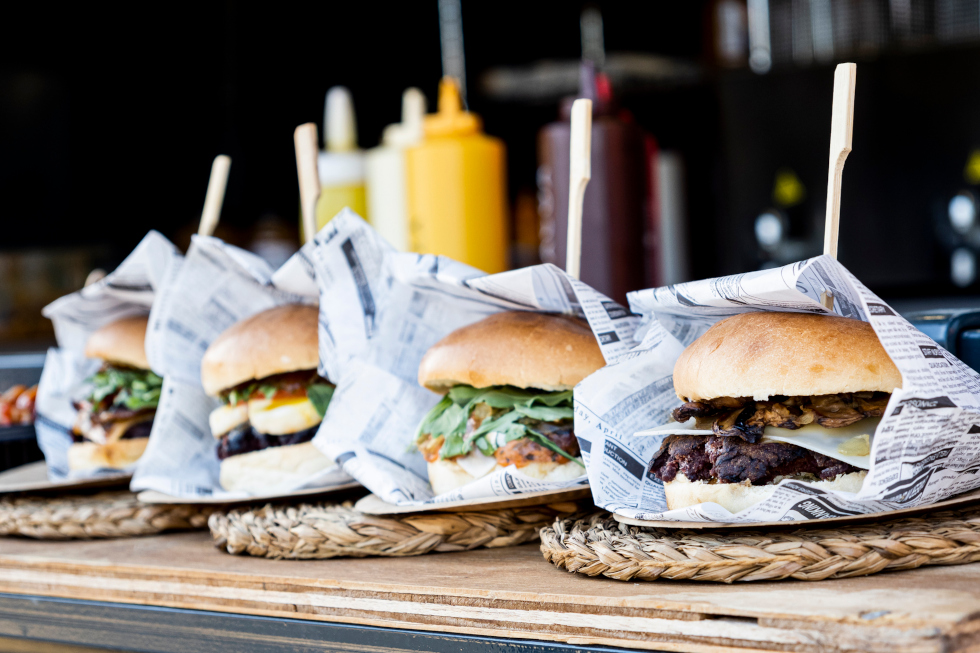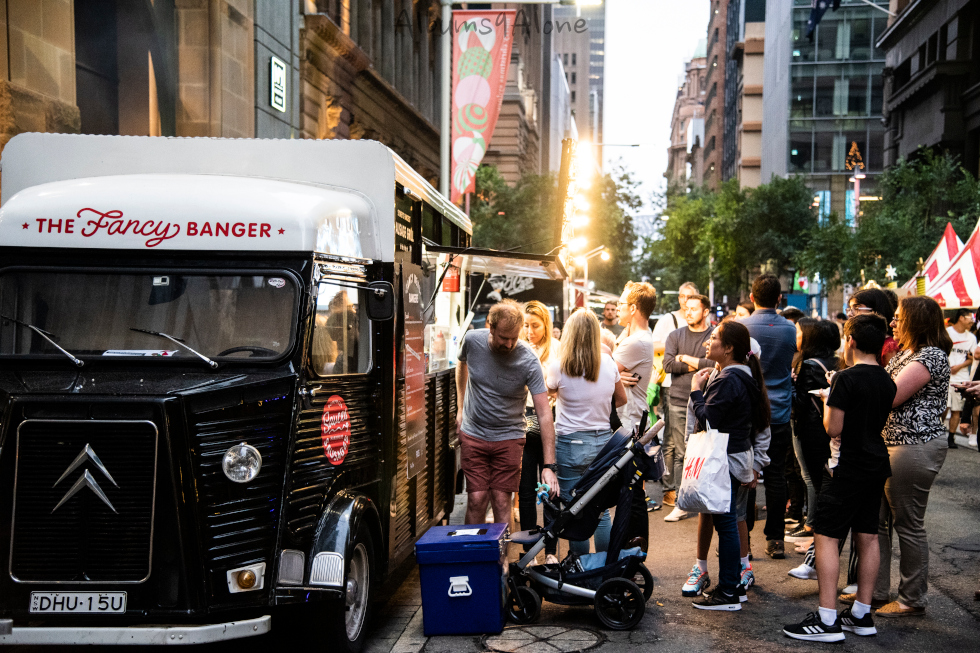The food truck industry in Australia has transformed from a niche market to a profitable business idea in the past decade. From the ubiquitous ice cream trucks, food trucks have evolved to offer unique culinary experiences like a flavoursome paella or a crispy gözleme.
If you are an aspiring entrepreneur with a passion for food, combining your interests can be a lucrative business idea. We've compiled a comprehensive guide to walk you through everything you need to know about starting your food truck business in Australia.
6 Steps to open a food truck business in Australia
1.) Market research and concept development
Food trucks in Australia offer everything from international cuisines to health-conscious options. Finding your niche in this market will be the key to your success. Visit local markets to observe which food trucks are popular and speak to food truck owners and event organisers to understand the food scene.
Once you've understood the market, identify opportunity gaps and inspiration for your truck's concept. Is there a specific demographic you can target? Or a novel take on a currently popular food trend?
2.) Develop a strong business plan
A solid business plan is the foundation for any successful venture, and a food truck is no exception. It serves as your roadmap and shows potential investors the viability of your business idea.
How to write a winning business plan for your food truck
- Business overview
A business overview must include a mission statement describing your food truck concept, your vision for the truck and what makes it unique. Also, define your business structure, for example, a sole proprietorship or a partnership, and detail the legalities required to start your food truck.
- Market analysis
Analyse the food truck market in your area, including your competitors and target audience. Highlight industry trends in Australia and explain how your truck will stand out.
- Menu and pricing strategy
Your menu is the core of your business, so ensure it aligns with your concept and is practical for a mobile kitchen. Keep pricing competitive yet profitable.
- Start-up costs and funding
Provide a detailed breakdown of start-up costs like the truck, equipment, permits, branding, etc. Mention how you will fund the business - whether you plan to use your savings, apply for a loan or find investors for your food truck business.
- Financial projections
Project your revenue and expenses for the first 1-3 years. Include fixed and variable costs, define your break-even point, and outline your growth strategy.
- Operations plan
This includes the day-to-day logistics of running your food truck, including operating hours, staffing, supply chain management, and workflow processes.
3.) Licensing and regulations in Australia
A mobile food vending business falls under two categories in Australia:
- Food van: restricted to serving food that's not potentially hazardous or involves low-risk practices such as frothing milk for coffee or selling ice cream.
- Food trucks: selling potentially hazardous food that's cooked to order or required to be maintained at temperature.
Licences and regulations vary in each state and council, but the most basic requirement is to register your truck and possess a valid driver's licence. These are the licences, permits, and regulations you will need before launching:
- A Driving License
- Food Business License
- Mobile Food Vendor Permit
- Food Safety and Health Regulations
- Insurance like Public Liability Insurance, Product Liability and Vehicle Insurance
- Waste Disposal and Environmental Considerations
Each state has different requirements, so we suggest you check the local council websites for more details.

4.) Design a winning menu
Your food truck's menu and concept are crucial to its success. Focus on creating a simple, unique menu that caters to diverse dietary needs. Price your items to cover costs while providing good value to customers.
5.) Equipment and setup costs
Starting a food truck business requires a significant investment in equipment, setup costs, and ensuring compliance with health and safety regulations.
Essential equipment and expected costs
- Food truck or van (new, used, or customised).
- Truck modifications
- Cooking equipment (grills, fryers, refrigerators, etc.).
- Power sources (generators, battery systems, solar).
- Refrigeration and storage
- Sinks and water tanks.
- Serving equipment (packaging, utensils).
- Point of Sale (POS) system for payment processing.
- Branding and marketing.
- Ongoing Operational Costs (fuel and maintenance, food and ingredients, staffing).
6.) Choosing the best spots for your food truck
The success of food trucks relies heavily on foot traffic. You need to strategically position your truck in areas with a high concentration of potential customers, like:
- High-traffic areas like CBDs, tourist hotspots and university campuses.
- Music festivals, farmer's markets and events like the Melbourne Food & Wine Festival or the Sydney Night Noodle Markets.
- Catering vans for private events, such as weddings, corporate functions, or birthdays.
One of the advantages of owning a food truck is mobility. Many successful food trucks move between multiple high-traffic spots to reach different audiences on different days or times of the week.

Common challenges and pitfalls to avoid
Like any other business, running a food truck comes with its own set of challenges. Being aware of these common pitfalls can help you avoid costly mistakes. Here are some common pitfalls you should avoid:
Ignoring weather and seasonality
A food truck's success depends on weather and seasonality. Bad weather can reduce foot traffic and sales. To succeed, cater to the weather by offering hot soups in winter and refreshing smoothies on hot days.
High competition in urban areas
The food truck scene in Australia is competitive, with many businesses vying for attention in popular areas. Assess your competition, and find ways to make your food truck unique.
Inefficient workflow and menu planning
Operating in a small kitchen with limited staff can be challenging, especially during busy hours. Simplify your menu and kitchen setup to allow quick service without compromising quality.
Failing to comply with local regulations
Regulations for food trucks vary by city and state in Australia, and failing to comply with these can result in fines, forced closures, or even the revocation of your operating licence. Stay on top of local laws and ensure your truck and staff meet health and safety requirements.
Underestimating ongoing costs
Many new food truck owners assume start-up costs will be lower than a restaurant, but expenses like the truck itself, equipment, permits, and insurance add up quickly. Ongoing costs, such as fuel, maintenance, and ingredients, can strain cash flow, so ensure you have enough working capital for the first few months.
Lack of marketing and branding
Many food truck owners overlook the importance of branding and marketing. Building a unique and recognisable brand can make all the difference in a crowded market. Use social media to your advantage and build a loyal following.
Successful Australian food trucks
Beatbox Kitchen (Melbourne, VIC)
One of the pioneers of Melbourne’s food truck culture, Beatbox Kitchen, was founded by Raph Rashid in 2009. Initially starting as a mobile burger joint, Beatbox Kitchen’s popularity has led to three new businesses, a trademarked sauce (Rashid’s Stereo Sauce), and a signature burger (the Raph Burger). Raph has created an immensely successful hospitality empire by following his passion for food.
Let's Do Yum Cha (Sydney, NSW)
Let's Do Yum Cha is renowned for serving delicious and fresh dim sum on the streets of Sydney. The business began as a food truck and rapidly gained a devoted following. Their success resulted in the expansion to multiple trucks and a dine-in restaurant. Their emphasis on providing high-quality, traditional Chinese dumplings has allowed them to establish a niche in mobile and sit-down dining.

3 Australian Cities Where Food Trucks Are Thriving
Melbourne, Vic
Melbourne is at the centre of Australia's food truck culture, boasting a vibrant street food scene that offers gourmet and global cuisine. The city frequently hosts food truck parks like Welcome to Thornbury, where food trucks take turns serving delicious dishes in a dedicated space for customers to enjoy.
Sydney, NSW
The food truck scene in Sydney is flourishing, especially in areas like Barangaroo and the Inner West, where food trucks often gather to serve locals and tourists. Sydney's iconic outdoor venues, beaches, and parks attract thousands of tourists, providing perfect locations for food trucks to thrive year-round.
Brisbane, Qld
Brisbane has experienced a significant increase in the number of food trucks, particularly in popular food truck parks such as Eat Street Northshore and Mt Gravatt Street Food Markets.
It's time to get on the road
Food trucks are a huge hit in Australia, and their popularity is only rising. Research your local market and food trends, stay on top of licences and regulations, and you will soon be the most popular food truck in Australia.
FAQs
How much does it cost to start a food truck in Australia?
Costs range from $50,000 to $100,000 depending on truck setup, equipment, and permits.
How much does it cost to run a food truck monthly?
A food truck's average monthly operating costs range from $1,250 to $2,500.
How much do food trucks make?
Food trucks make between $250,000 and $500,000 annually, with the industry's top 10% being able to make more than $500,000.
Do I need a licence to start a food truck?
Yes, you need to obtain the necessary permits and food safety certifications and obey regulations according to your regional council.
